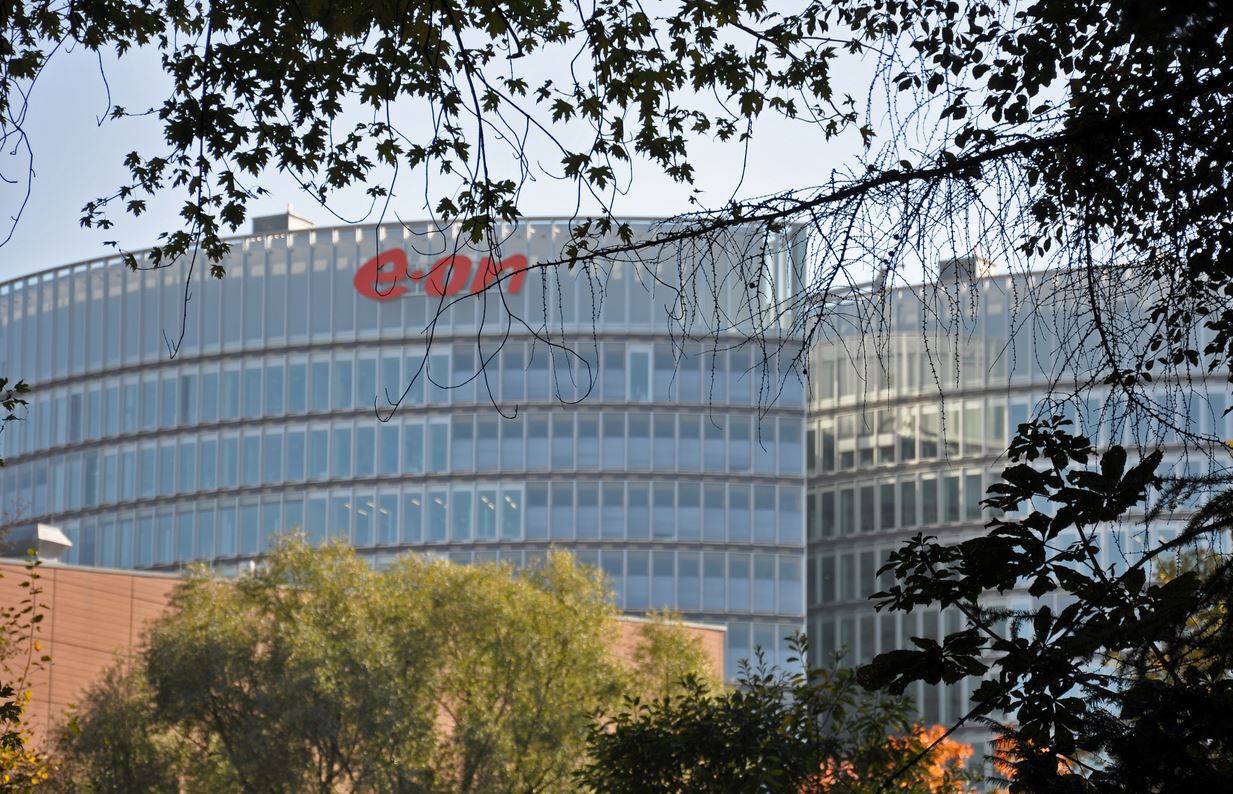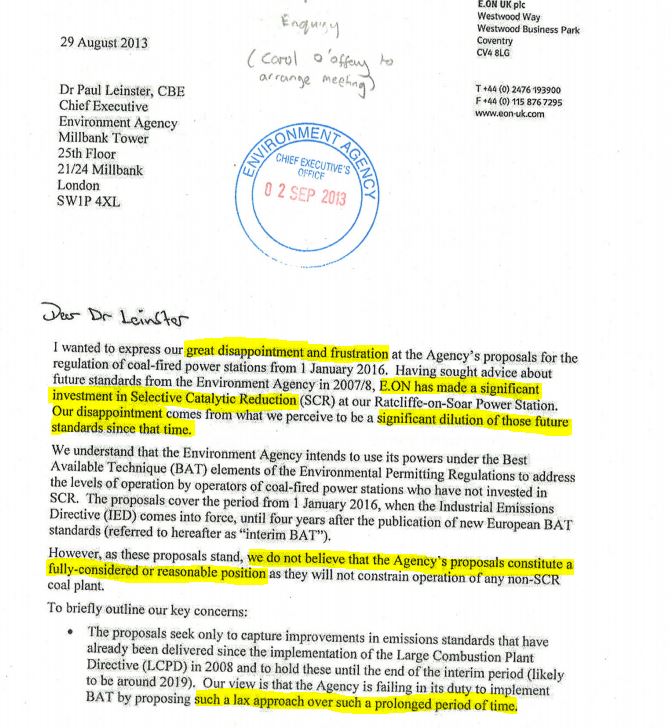Energy giant ‘disappointed and frustrated’ that UK weakened pollution rules

E.ON’s chief executive complained that the UK was trying to weaken its proposed power plant pollution regulations — according to documents acquired via Freedom of Information.
Tony Cocker, who runs E.ON’s UK division, wrote to the Environment Agency in 2013 to express “great disappointment and frustration at the agency’s proposals for the regulation of coal-fired power stations”, which he said represents a “significant dilution” of the future standards.
This follows a recent analysis that revealed the proposed Europe-wide environmental pollution standards – called BREF – had been weakened to the extent that Chinese air standards are more stringent.
The rules, which will likely be adopted in 2016, have received numerous objections from industry-led national delegations, and parts written by industry representatives.
In a letter addressed to EA chief executive Paul Leinster, Cocker also claimed the EA was was proposing “lax approach” to implementing the future regulations, and thus “failing in its duty”.
E.ON, it turns out, had actually been preparing for these regulations, having “made a significant investment in Selective Catalytic Reduction (SCR) at [the] Ratcliffe-on-Soar Power Station”.
SCR is a kind of technology to reduce the amount of nitrogen oxides (NOx) in coal plant emissions – which contributes to air pollution as is addressed in the standards.

It follows that E.ON was probably concerned that other power plants wouldn’t make corresponding outlays on technology to reduce the amount of air pollution they emit.
BREF is an almost comically complicated set of rules designed to address large combustion plants’ air, soil and water pollution, as well as thermal efficiency in the EU.
Read more:
- Everything you need to know about BREF
- BREF: European air standards worse than China’s
- Energy Files: UK industry group writes new European air pollution rules
The BREF rules will be introduced alongside the Industrial Emissions Directive at the start of 2016 and look set to be made legally binding sometime around 2020.
Power stations will have to already be compliant by then, however, and it’s in this period when the BREF rules will be interpreted by permit writers.
The ‘B’ in BREF stands for BAT, which itself stands for Best Available Techniques, which in turn refers to how to reduce power plant pollution.
But it’s not known whether plant operators will invest to retrofit their plants in that time to bring them in line with the standards or conclude it is not economically viable to do so.
Watering down of pollution standards
The BREF will mean power plants that aren’t compliant with the standards (set out in their permits) could face a significant penalty — they won’t be allowed to operate for nearly as many hours.
Cocker was particularly up in arms about fact the proposals could allow large power plants to operate for 4,000 hours a year rather than 1,500 at a certain NOx limit.
This suggests the new standards would be weaker than the old ones in place under two European laws – the Industrial Pollution Prevention Control Directive (IPPC) and the Large Combustion Plants Directive (LCPD).
Cocker also warned: “By failing to to require any imporvement in performance over this period, the proposals will stifle emerging technology which may be able to deliver improvements at relatively low cost, such as Ultra Low NOx burners.”

